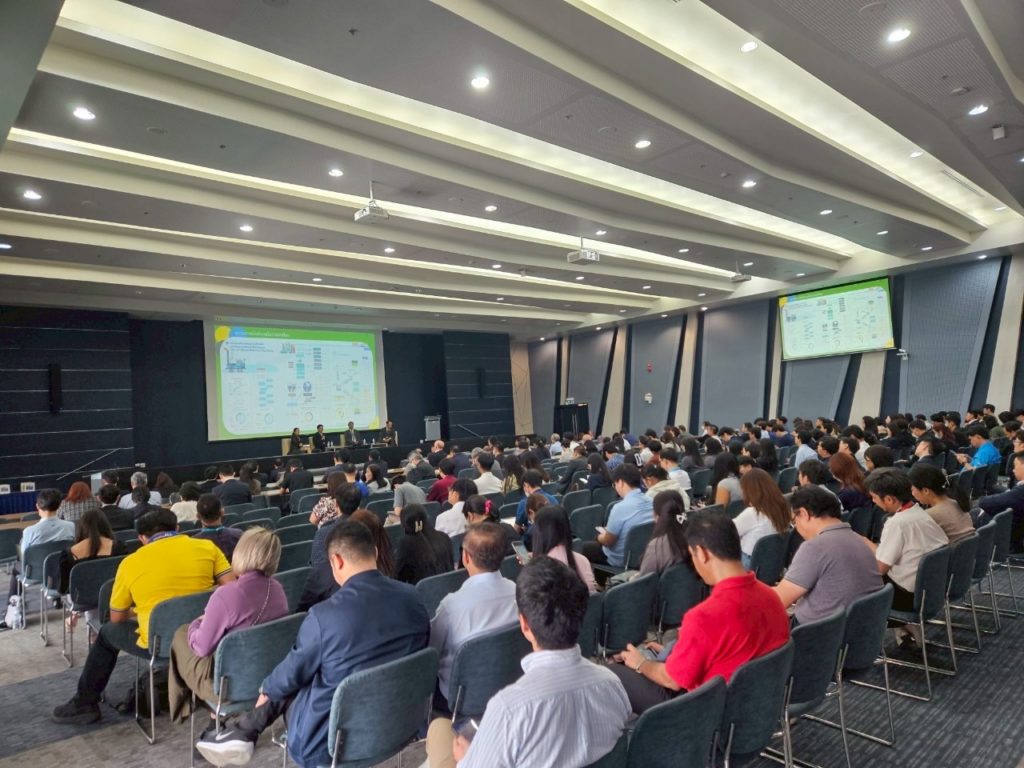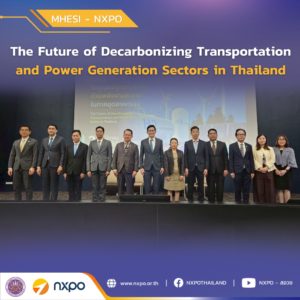Assoc. Prof. Wongkot Wongsapai, Vice President of NXPO, participated in the 2025 Annual Conference of the National Science and Technology Development Agency (NAC2025): AI-driven Science and Technology for Sustainable Thailand, held on 28 March 2025 at Thailand Science Park. He served as a speaker in the seminar “The Future of Decarbonizing Transportation and Power Generation Sectors in Thailand,” which was attended by over 300 participants.
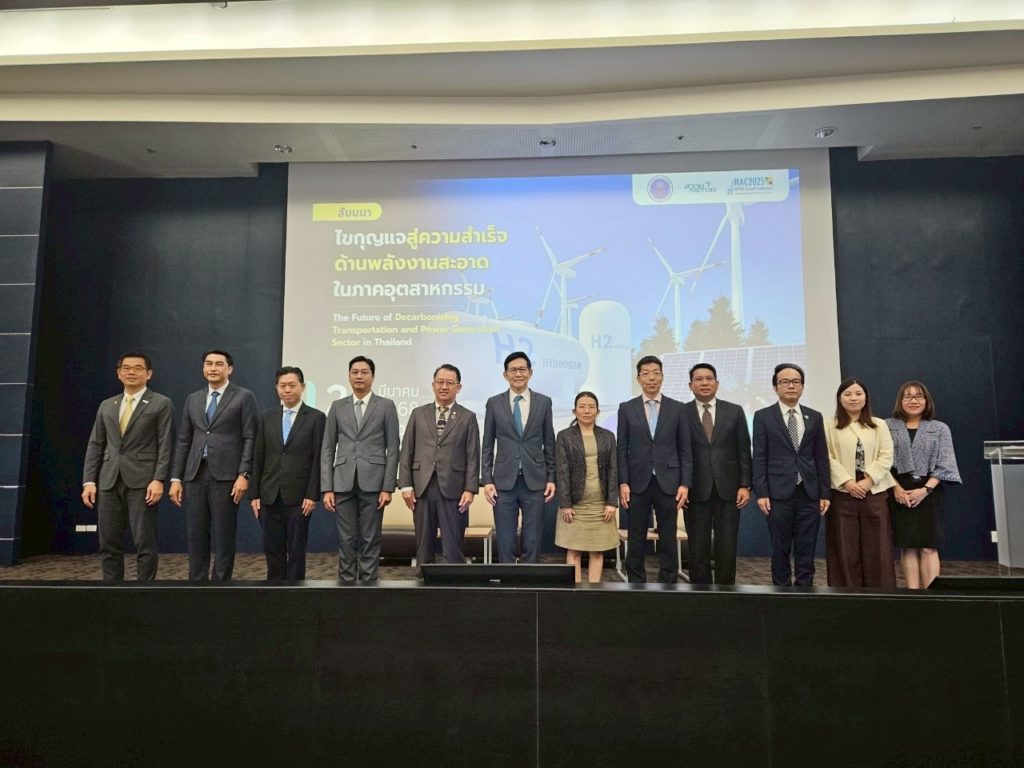
Dr. Wongkot discussed the role of AI-driven foresight in identifying pathways for clean energy production, transportation, and utilization across industries, supporting Thailand’s net-zero goals. He emphasized that foresight analysis enables strategic planning, helping the country prioritize technological pathways for each specific timeline—particularly in the transportation and power sectors, which are critical drivers of national progress.
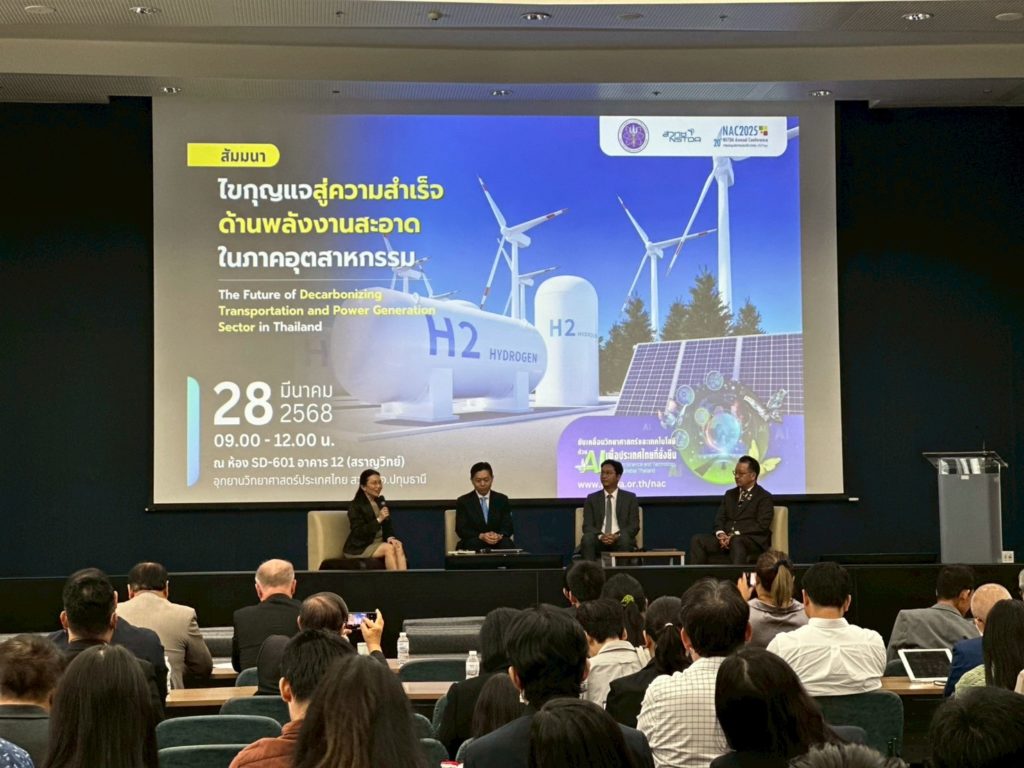
Future foresight in mobility and transport signals a clear transition toward sustainability. In short term, growing public awareness will accelerate the adoption of clean energy solutions, such as electric vehicles (EVs), e-fuels, hydrogen, and sustainable aviation fuels (SAF). Urban mobility trends indicate a rise in electric bicycles and scooters. In medium term, EV adoption will expand significantly in both private vehicles and freight transport. Autonomous transport will become mainstream, and swappable battery technology will gain traction. In long term, the sector will evolve into an AI-integrated transportation ecosystem, featuring autonomous vehicles, AI-powered traffic control, hyperloop systems, high-speed maritime transport, and drone-based logistics, alongside the development of zero-emission cities.
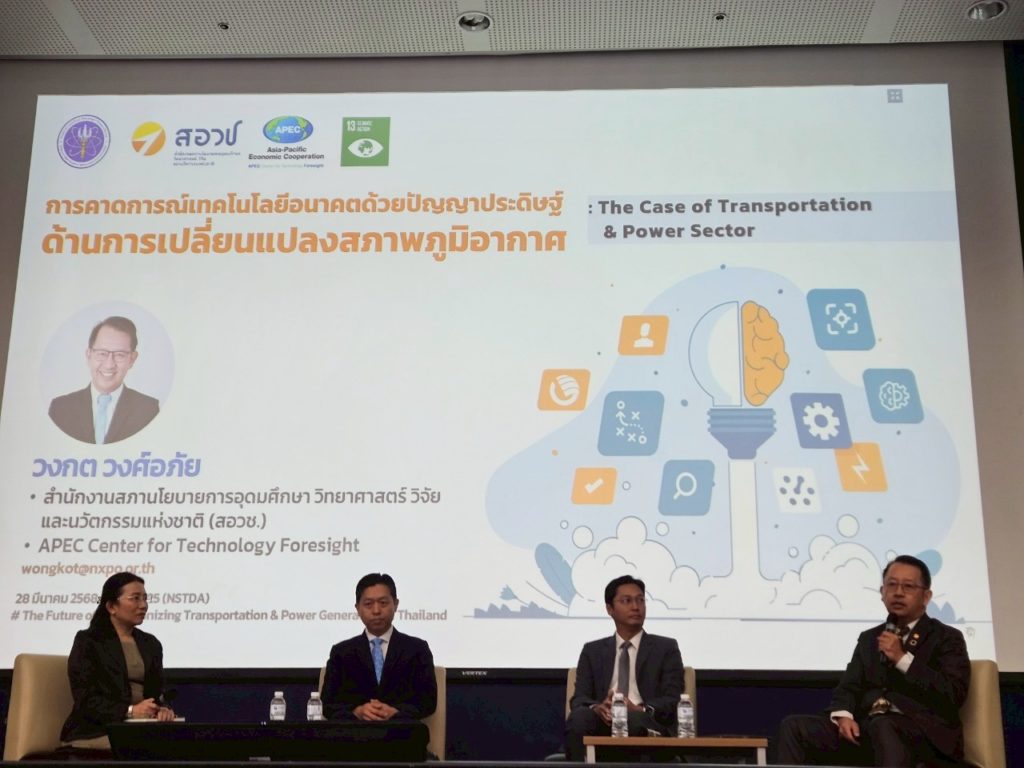
As for the future scenario of energy system, in short term, renewable energy sources (wind and solar) will rapidly expand, driven by declining costs. The hydrogen economy will begin to take shape, alongside advancements in next-generation battery technologies such as solid-state and sodium-ion batteries, and the continued development of smart grids. In medium term, energy storage will see increased investment, and in long term, the global energy system will undergo a transformational shift with the adoption of new renewable energy technologies, including small modular nuclear reactors (SMRs).
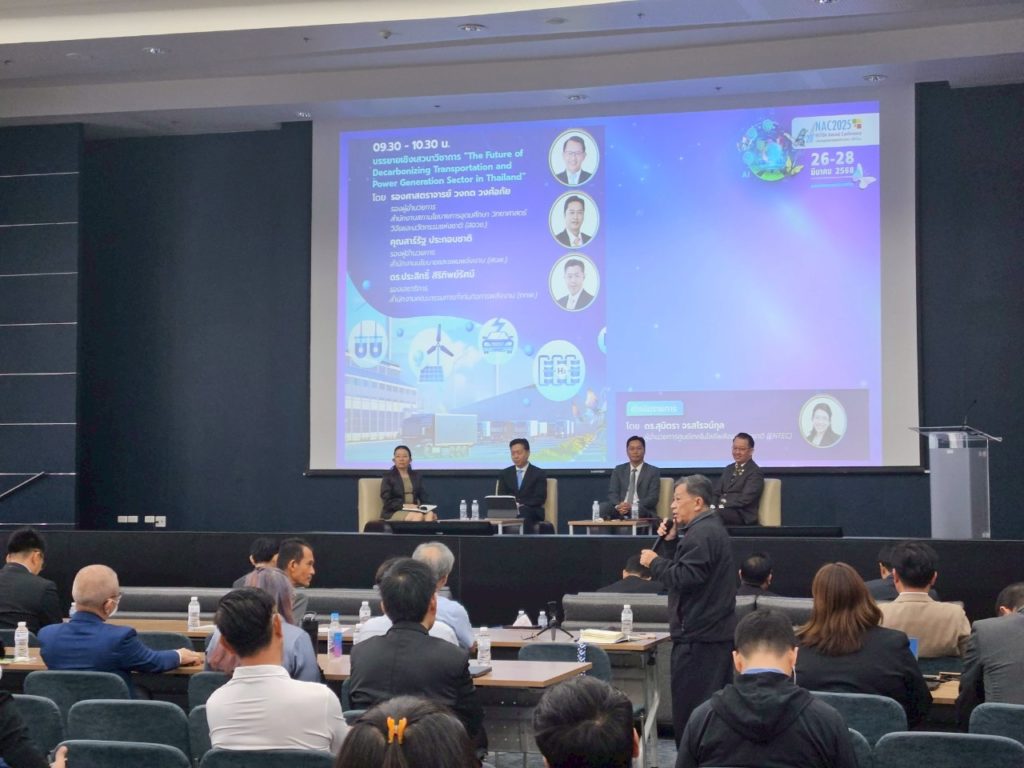
Additionally, Mr. Sarat Prakobchat, Deputy Director General of the Energy Policy and Planning Office (EPPO), presented key updates on national energy policies and plans, highlighting the progress of the Power Development Plan (PDP) and the Alternative Energy Development Plan (AEDP). Dr. Prasit Siritiprussamee, Deputy Secretary-General of the Office of Energy Regulatory Commission (ERC), provided an overview of the ERC’s responsibilities in regulating electricity and natural gas sectors. His presentation covered energy security, economic stability, and sustainability, with a strong emphasis on long-term greenhouse gas reduction through an energy transition strategy. NXPO plays a key role in shaping national policies on higher education, science, research, and innovation and serves as Thailand’s National Designated Entity (NDE) for climate technology development and transfer under the United Nations Framework Convention on Climate Change (UNFCCC). Supported by the Global Environment Facility (GEF), NXPO is leading Thailand’s Technology Needs Assessment (TNA) to evaluate the country’s climate technology requirements. The findings are reported to the United Nations and developed in collaboration with key stakeholders, including industry players and relevant sectors.
